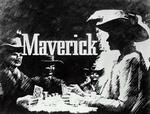The Albany Times Union reports that agent Martha Ivery, who also ran a sham self-publishing company, has admitted to defrauding scores of aspiring authors out of tens of thousands of dollars.
Ivery admitted guilt to 15 counts of mail fraud in connection with taking money
from would-be authors. She also pleaded guilty to one count of credit card fraud
and one count of bankruptcy fraud, all felonies, in U.S. District Court in
Albany.
Ivery, 57, has not been offered a plea bargain. She faces up to 20 years in
prison on the mail fraud charges, 10 years on the credit card charge, and five
years on the bankruptcy charge. Ivery also could be fined as much as $250,000.
"There would be no defense on this case and it would be prudent on her part
to change her plea," said Ivery’s attorney, Richard Mott of Albany. "She
realizes the proof would be overwhelming … she wishes to demonstrate to the
court she has full contrition."
Assistant U.S. Attorney Tom Capezza said he also was looking for restitution.
Prosecutors say she took as much as $700,000 from 200 writers.
Ivery defrauded prospective authors from 1997 to 2002, prosecutors said. She
presented two different identities: publisher of Press-TIGE Publishing Co., and
Kelly O’Donnell Literary Agency Inc.
After hooking authors by advertising in Writer’s Digest magazine and on the
Internet, the O’Donnell agency represented the authors and led them to the
publishing company. Fee requests kept coming, but books were rarely published.
Ivery’s company filed for Chapter 7 bankruptcy liquidation in 2002, but she
then created another business, New Millennium Publishing House Inc. She is
scheduled for sentencing April 28.
A.C. Crispin, a science fiction writer who works with the scam-busting site
www.writerbeware.com, said the organization started watching Ivery six years
ago.
"This case, unlike the other ones we followed, really got personal," said
Crispin, a Maryland author. "She made death threats to us, and stalked us
online. I plan to go to the sentencing."
Author AC Crispin and all the others at WritersBeware should be congratulated for the wonderful work they do on behalf of writers everywhere. It takes guts to be as unrelentingly vigilant as they are ferreting out publishing scams — and without the recognition and appreciation they deserve for their volunteer efforts.
Let’s hope this case serves as a warning to the publishing scammers who seem to be all over the Internet these days, taking advantage of the deseperation and gullibility of aspiring authors.
Here’s are three simple ways to avoid being suckered by a publishing scam:
Never pay to be published.
Never pay an agent (they make their money by taking a commission from your sales).
Never pay a reading fee.

